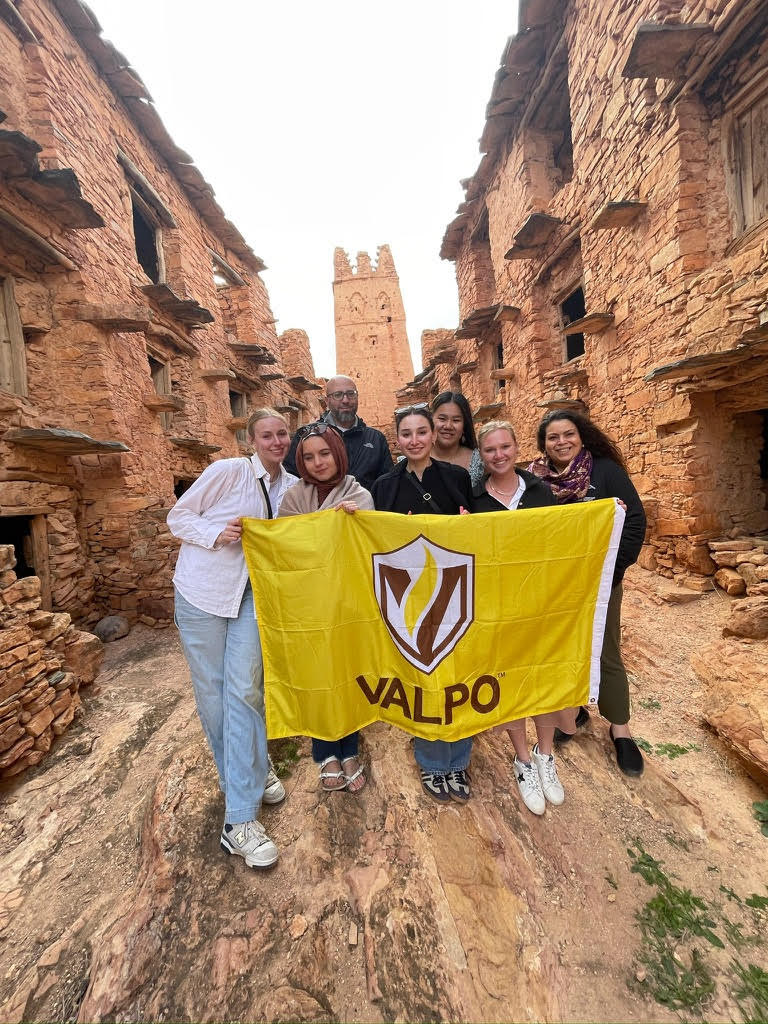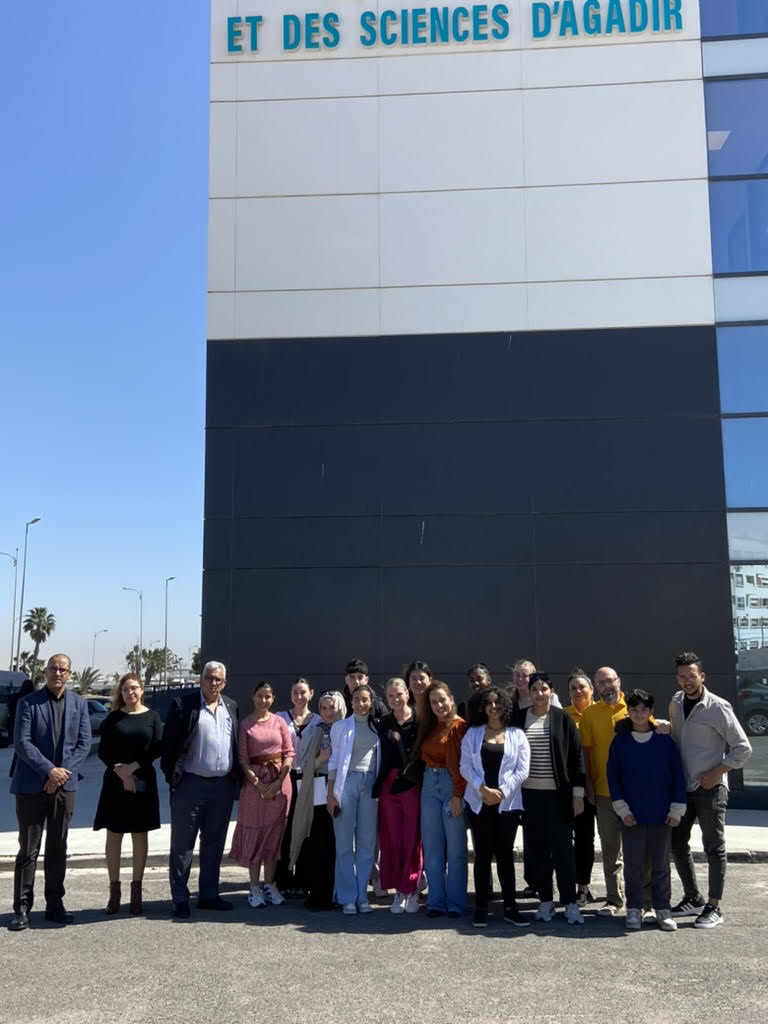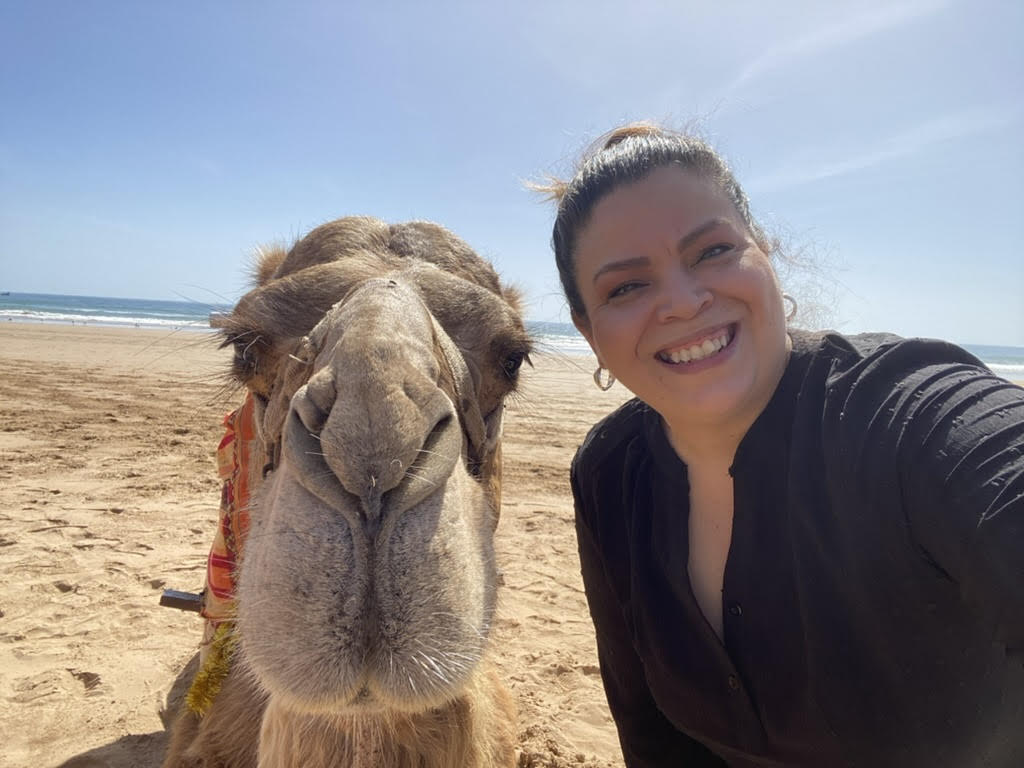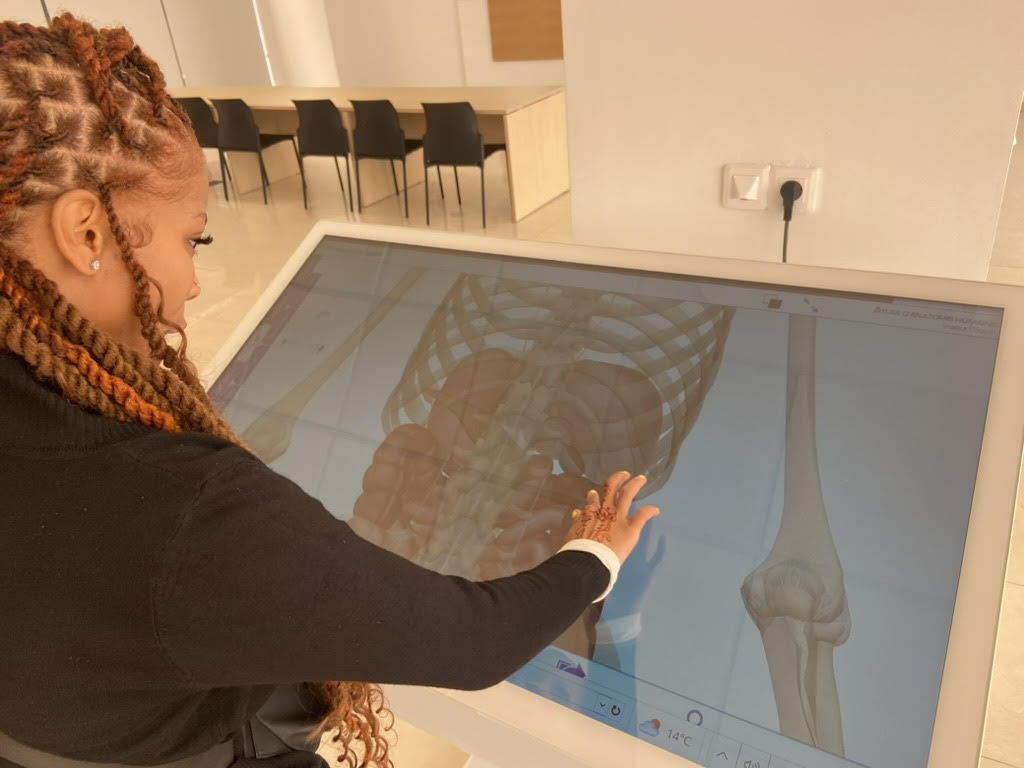Radiate Knowledge and Care
Valpo’s Study Abroad opportunities are grounded in the experiences and perspectives that we know our students will gather along the way. This year the College of Nursing and Health Professions offered trips to Thailand, Costa Rica, and Morocco to provide students with an opportunity to experience different cultures, learn from those educational systems, and understand the importance of empathy in health care.

Rami Musleh, PA-C, clinical assistant professor of physician assistant studies, and Jessica Bruskoski, PA-C, clinical assistant professor of physician assistant studies, led the trip to Morocco where students spent their time becoming acquainted with an entirely different higher education structure, cultural practices, and food.
“Our purpose for this trip was to (1) to learn about the Moroccan culture, (2) provide service to the Amazigh or indigenous community that would be sponsoring a traditional Moroccan dinner for us in their village, (3) be able to compare the process of being a healthcare worker in Morocco versus the U.S. and (4) be able to compare healthcare services in Morocco versus the U.S.,” says Professor Bruskoski.
The College of Nursing and Health Professions has not offered a trip to African countries in the past, so the novelty of this spring break Study Abroad trip added to its already unique mission statement.
“I always wanted to go on one of our spring trips, and I always wanted to go to Morocco,” says Professor Musleh. “When I asked Dean Allen if she thought adding a new destination in Africa was a good idea, she was super excited about it and encouraged me to set it up. College of Nursing and Health Professions has never gone into Africa before and this was the best way to introduce students to a totally different environment.”

The students who accompanied professors Bruskoski and Musleh learned about the process of becoming a healthcare worker in Morocco and visited a free public university for doctors, nurses, and pharmacists. They also visited a private university with an annual tuition of only $3,000 per year, a drastic difference from current medical school tuition costs in the U.S.
“In general, college is a free option to all Moroccans,” says Professor Bruskoski. “However, many Moroccans are impoverished and need to work to care for themselves and their family thus are unable to go to college. Regarding healthcare-based degrees, students did have to pass an entrance test for both and there was a preference for women per the dean. He said women were more family-bound and likely to stay and work in Morocco after graduation.”
The stark difference in the educational model provided students with a global perspective that could not be gained elsewhere. As future health care professionals, Valpo students rely on their abilities to build communities and connect with their patients through a shared humanity. Observing and learning from health care professionals in Morocco allowed our students to access that humanity.
“I hope that this trip gave our students a greater appreciation of how big this world is, and how important diversity is to a functional society,” says Professor Musleh. “Even though we all come from different backgrounds, speak different languages, and have different colored skin, we all have a common goal to try to make this world a better place for our families to be successful.”
Professor Bruskoski also believed that exposure to a different culture and society was extremely important for Valpo students as a large part of their profession relies on their ability to be welcoming, accepting and compassionate servant leaders.

“Regardless of what area of medicine these students end up in, they will have to interact with patients of all backgrounds,” says Professor Bruskoski. “We were in an area where most individuals were Muslim and were there during a time when many were preparing for Ramadan. I believe witnessing these differences will help students be more compassionate providers. It will remind them to consider what personal or religious differences may be present and important to the patient as they create management plans for them.”
Along with the immersive educational demonstrations and tours, Valpo students sampled a large variety of Moroccan foods and traditional dishes during their stay.
The group was also able to visit a small Berber village where they were invited by a local family for lunch and dinner. Students learned about Moroccan heritage and food and provided the village with a $200 gift, as well as sweets and gifts for local children.
In its entirety, this trip allowed Valpo students access to an educational experience that is unique to our University. The College of Nursing and Health Professions strives to constantly have the most cutting-edge technology and accommodations to prepare students to be tomorrow’s health care professionals. Professor Bruskoski noticed that the university that hosted them was doing the same.
“I enjoyed being able to sit in on a class (although taught in French) and see their facilities which were state-of-the-art,” says Professor Bruskoski. “I teach simulation for the PA program, so it was nice to see the simulation equipment at the public university, also state-of-the-art. If this trip continues, we would like to collaborate with their SIM faculty to create an interprofessional simulation case that we can facilitate together during our next trip.”

“I enjoyed being able to sit in on a class (although taught in French) and see their facilities which were state-of-the-art,” says Professor Bruskoski. “I teach simulation for the PA program, so it was nice to see the simulation equipment at the public university, also state-of-the-art. If this trip continues, we would like to collaborate with their SIM faculty to create an interprofessional simulation case that we can facilitate together during our next trip.”
Valpo faculty are always looking for new ways to engage students in classroom material through an immersive or experiential approach.This year the College of Nursing and Health Professions offered the three trips across the world to allow students to remain grounded in their shared interests and curious for what they can achieve together.
